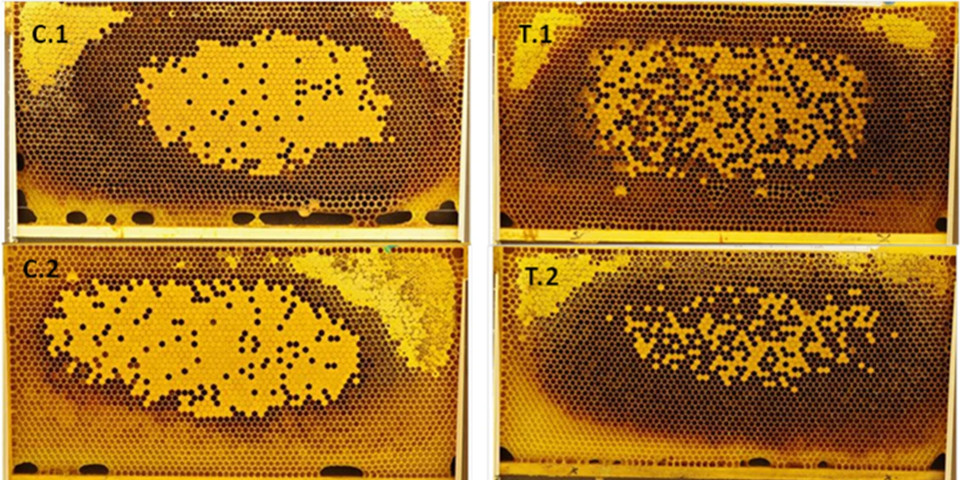To avoid potential adverse side effects of chemical plant protection products, microbial pest control products (MPCP) are commonly applied as biological alternatives. This study aimed to evaluate the biosafety of a MPCP with the active organism Bacillus thuringiensis ssp. aizawai (strain: ABTS-1857). An in-hive feeding experiment was performed under field-realistic conditions to examine the effect of B. thuringiensis (B. t.) on brood development and the bacterial abundance of the core gut microbiome (Bifidobacterium asteroids, Gilliamella apicola, the group of Lactobacillus and Snodgrasella alvi) in Apis mellifera worker bees. We detected a higher brood termination rate and a non-successful development into worker bees of treated colonies compared to those of the controls. For the gut microbiome, all tested core members showed a significantly lower normalized abundance in bees of the treated colonies than in those of the controls; thus, a general response of the gut microbiome may be assumed. Consequently, colony exposure to B. t. strain ABTS-1857 had a negative effect on brood development under field-realistic conditions and caused dysbiosis of the gut microbiome. Further studies with B. t.–based products, after field-realistic application in bee attractive crops, are needed to evaluate the potential risk of these MPCPs on honey bees.
Steinigeweg C, Alkassab AT, Erler S, Beims H, Wirtz IP, Richter D, Pistorius J (2022) Impact of a microbial pest control product containing Bacillus thuringiensis on brood development and gut microbiota of Apis mellifera worker honey bees. Microbial Ecology (early online). DOI: 10.1007/s00248-022-02004-w










